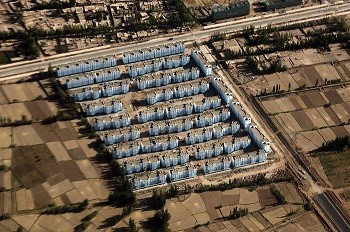The Chinese government is set to implement more social welfare projects in Xinjiang Uyghur Autonomous Region in northwest China this year as it pledged to invest more than 72 million yuan (approximately $12 billion) to help spur growth and development in the region.
Huang Wei, vice chairman of Xinjiang, said on Feb. 25, Wednesday, that part of the government plan includes the launching of more than 100 projects related to employment, housing, environment improvement and agriculture.
Xinhua reported that the government would prioritize the implementation of the projects in the region's rural villages, which number 9,611.
Huang also announced that 500,000 yuan will be allocated for each village or community, which will be used to finance projects related to transportation, environmental protection, utilities supply and agriculture.
The report said that the government will also pursue its plan to continue building new houses, provide job opportunities and enhance economic growth at the village level by providing livelihood projects.
In addition to this, authorities have also announced that 12 rural projects will be launched this year, which include the construction of homes for the elderly and the disabled, as well as plans to improve education by building more school houses and hiring new bilingual teachers.
Xinjiang is the largest administrative division of China and also the most populous. It has rich oil reserves and is the largest producer of natural gas in the country.
It is home to several ethnic groups that include the Uyghur, Han, Kazakhs, Tajiks, Hui, Kyrgyz and Mongols. The region has more than a dozen autonomous prefectures and counties for minorities.




























